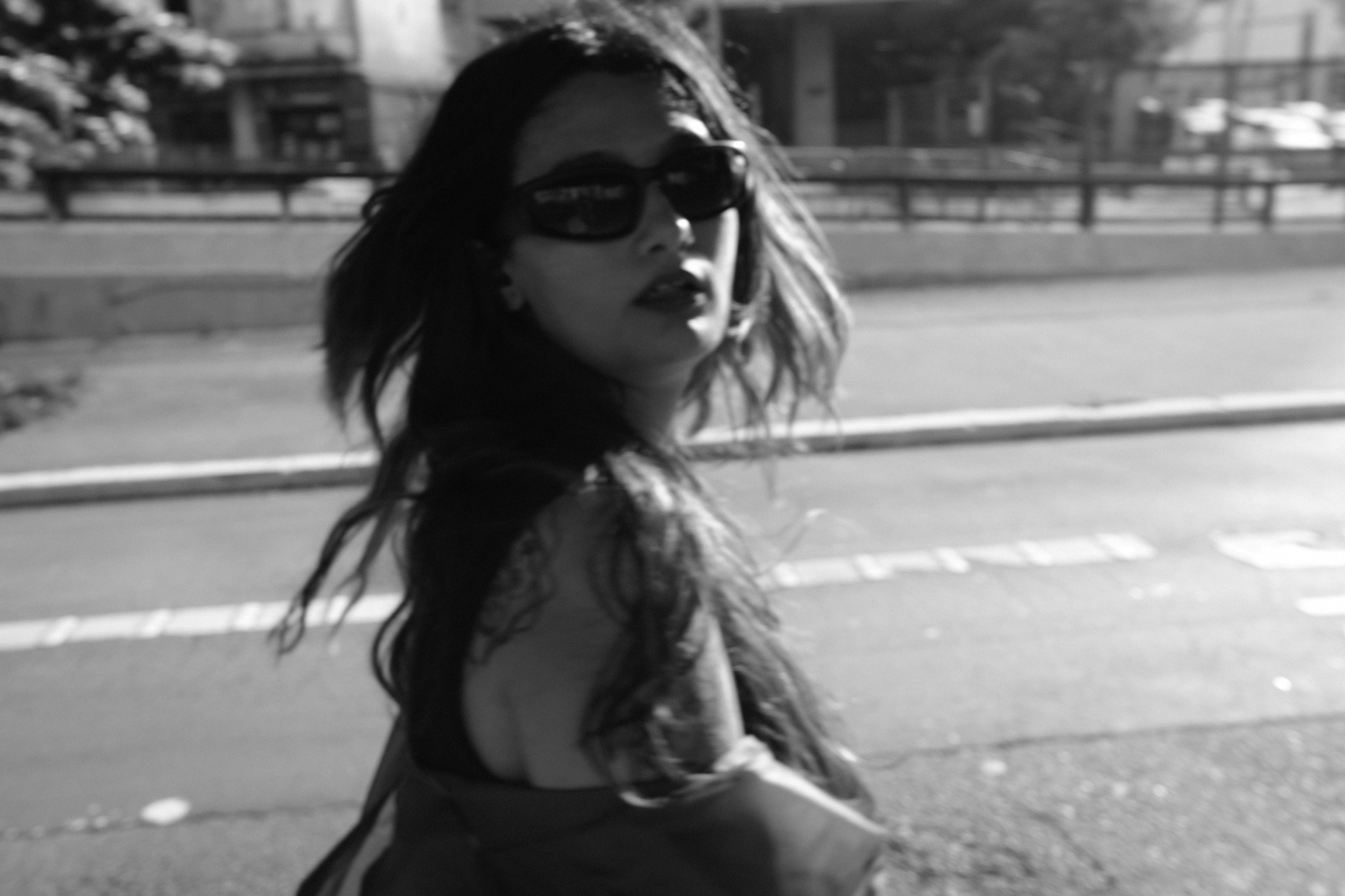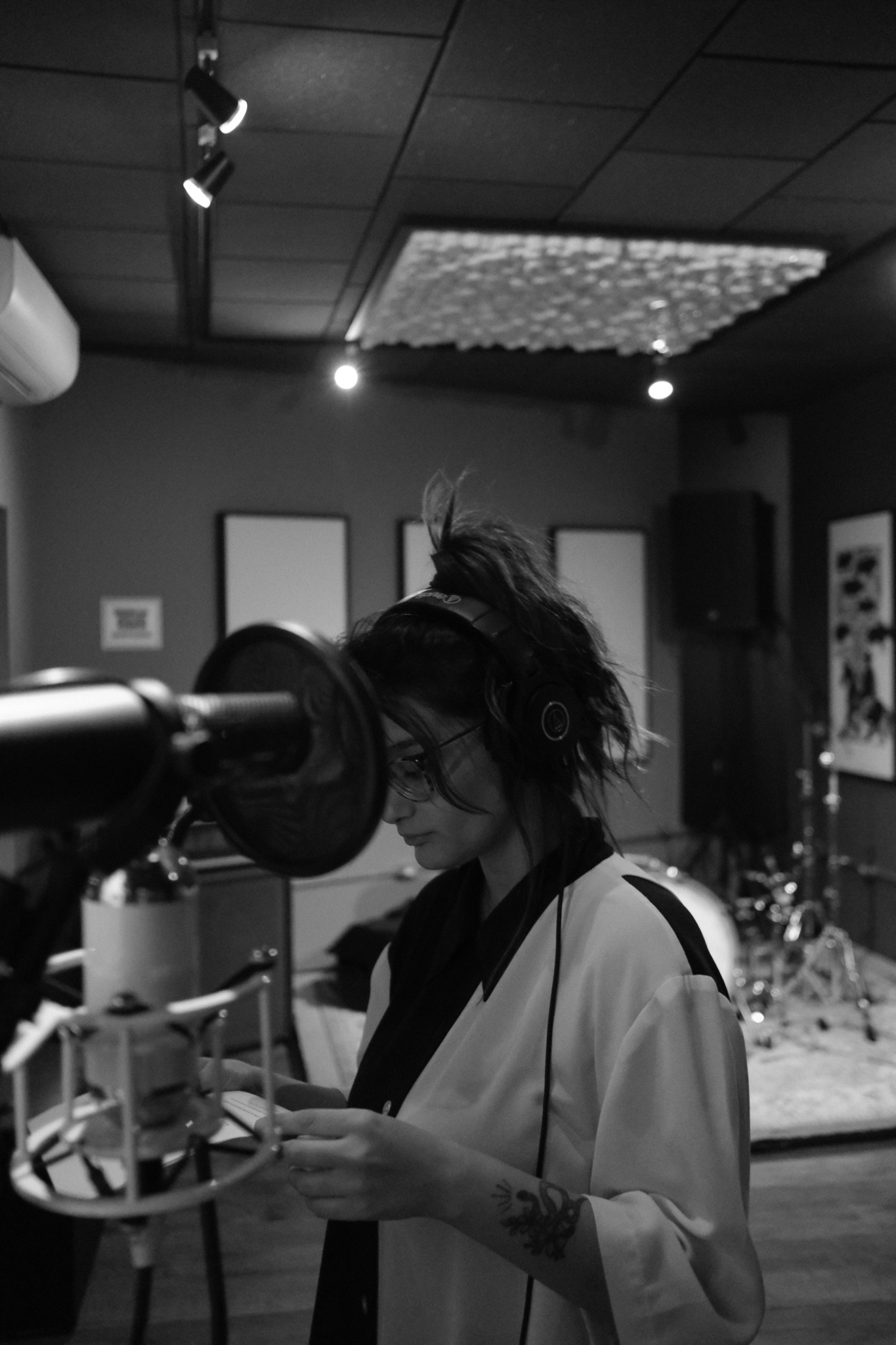Alright – so today we’ve got the honor of introducing you to Rosa Paiva. We think you’ll enjoy our conversation, we’ve shared it below.
Hi Rosa, thanks for joining us today. We’d love to hear the backstory behind a risk you’ve taken – whether big or small, walk us through what it was like and how it ultimately turned out.
Two years ago, I was working at a university, spending nine hours a day leading two interesting projects. On paper, it seemed like a great job—creative, full of challenges—but I wasn’t happy. My mind was constantly occupied, leaving me drained. On weekends, when I should have been songwriting or creating, all I could do was sleep and scroll through my phone. My creative energy was completely invested in other responsibilities, leaving nothing for my own artistic work.
I felt utterly depressed.
That week, I had to produce an event, but everything was going wrong. The team responsible for the videomapping had no idea what they were doing. I couldn’t request a proper team because “no one had time” for that project. The finance department refused to rent the right projector. And the worst thing that could possibly happen: I got stuck in a flood while trying to pick up the set design.
When the day of the event arrived, everything was a complete mess, and I had no support from anyone—except for my friends, who made the event happen despite all the challenges.
That was the moment I knew—I had to quit.
And so I did.
But first, I asked my supervisor to lay me off so I could receive my severance benefits (in Brazil, if you get fired instead of quitting, you’re entitled to compensation).
When I saw that money in my account, only one thought crossed my mind:
This is my moment.
The moment to release my first song.
To produce my first personal music video.
To finally create what I truly wanted.
So I took a leap of faith and I used that money to bring something to life that would have been impossible otherwise.
That’s how Banquete was born. With the help of my friends, I kickstarted my music career and, at the same time, gave birth to our creative agency, Cítrica Casa Criativa.


Awesome – so before we get into the rest of our questions, can you briefly introduce yourself to our readers.
My name is Rosa Paiva, and I don’t know what it means to live a non-creative life. I grew up surrounded by gouache paintings, cut-out words, and reinterpretations of Monet, while listening to The Beatles and Marisa Monte.
Since 2014, I have been working as a multimedia artist in audiovisual, music, and performance—merging image, sound, and poetry.
For the past nine years, I have worked on independent, institutional, educational, and corporate productions, taking on different roles—from editing to art direction. This experience has shaped my vision and allowed me to lead inspiring projects as a director, especially in music videos.
In my personal work as a director, I often explore plural themes related to femininity, forest and goddess mythologies, as well as childhood and old age. In 2016, I began research for my video art piece Yoni, where I worked as an executive producer, director, screenwriter, and performer in three performances. The project followed a unique directing methodology in which the dancers were guided by my singing, with a soundtrack created by Eric Max Hess. Yoni was selected for the 1st Brazil Black Art Biennial in 2019.
It was only in 2023 that I released my first single, Banquete, along with a performative music video, reaching 16,000 streams. Now, I am working on my new album, which blends traditional Brazilian rhythms with a contemporary pop style, addressing social and environmental themes.
I am also a co-founder of Cítrica, a creative studio specializing in brands, art, and culture. Founded by four LGBT creatives, Cítrica connects design and audiovisual professionals who are eager to break away from the obvious and craft bold, authentic visual narratives. Through this platform, I have been collaborating with artists, cultural producers, and companies to develop innovative projects that bridge artistic vision and storytelling.


Are there any books, videos or other content that you feel have meaningfully impacted your thinking?
Every time I feel blocked or unhappy with my creative work, I return to some books that inspire me, and today I want to share them with you.
First one: The Artist’s Way by Julia Cameron. If no one has ever recommended this book to you—where in the world do you live? Jokes aside, this book saved my life when I thought I could never achieve any of my creative dreams. After reading it and doing the exercises she suggests, I published a book and started producing my songs.
Second: Make Your Own Map: Career Success Strategies for Women by Kathryn Bishop. Wow, what a book! She makes us look at our goals and build a path to go further. Every woman should read this one.
Third: Show Your Work! by Austin Kleon. This book kicks your butt into action and makes you stop hiding your work in your drawers. I’m sure someone out there will connect with what you create—if only you share it with the world. And he is pretty convincing about that.
And lastly, Chop Wood, Carry Water by Joshua Medcalf changed the way I viewed hard work. The work you need to do to get what you want isn’t about pleasure in the beginning, but it makes you stronger and paves the way to where you truly want to go. They say this is a self-help book, but it’s worth it. It really taught me to be patient.


Is there a particular goal or mission driving your creative journey?
Work with and for women. Talk about tough topics so we can truly see what is happening in the world. Be an agent of Gaia’s regeneration in a decolonial approach. Create works that help people recognize themselves as part of planet Earth and its ecosystems, capable of planting seeds for what we desire through our words, dreams, and actions.
Contact Info:
- Instagram: https://www.instagram.com/larosapaiva/
- Linkedin: https://www.linkedin.com/in/rosapaiva/
- Youtube: https://www.youtube.com/channel/UC38P3c17nSC3yh-td84KAig


Image Credits
1, 2, 4, 5 – Laís Sanches Martins
3 – Rodrigo Pereira
6, 7, 8 – Samara Amorim


